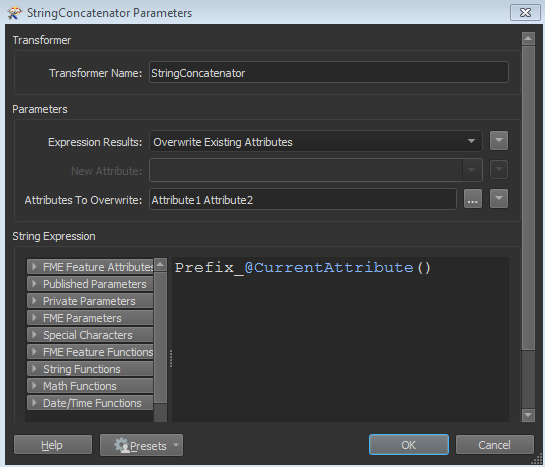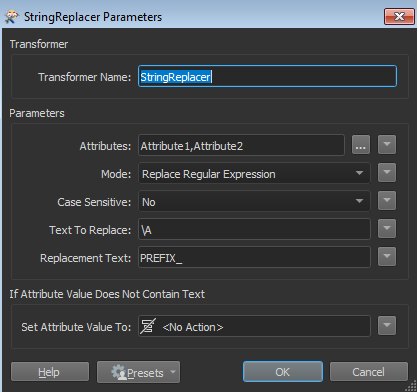It seems to me like I'm looking for a transformer very similar to the ExpressionEvaluator with 'Evaluation Mode' = 'Overwrite existing Attributes', only without the numeric evaluation (that doesn't seemingly 'wrap' the expression in a arithmic editer).
I thought about posting an idea about this (e.g. create new transformer or add parameter 'evaluation mode' = (text|arithmetic) to ExpressionEvaluator), but just wanted to check if I'm maybe overlooking existing functionality.
Attached is a workspace that illustrates the numeric evaluation possibilities in the ExpressionEvaluator, and an example of how I would like to have the option for a 'text evaluation' possibility to e.g. add '_concat_@CurrentAttribute' to each attribute in the selected group.









 I think you're correct that it won't work with @Evaluate though.
I think you're correct that it won't work with @Evaluate though.